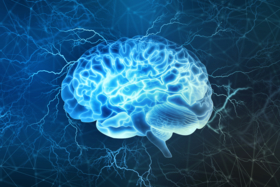Definition of the modality of judgments

Modality (from the word “modus” - method) is an add-on of the semantic component over the logical one. The general statement (judgment) is placed in the modal framework of information perception, which the speaker himself establishes, expands or narrows the boundaries of his thinking, in which the single meaning of the expression is considered. If the truth is an independent attitude of the utterance to reality, then the modality is the attitude of the speaker to the given utterance.
Any expression is built from three components - an object (subject), a predicate and a connector. An object is what a person thinks about, ascribes various properties and actions to it. For example, "all metals conduct electricity." Metal (object) is attributed to the property of conductivity. Objects are also called separate concepts, forming or conforming thought.
The true expression does not include the activity of the subject, although the subject (as the presence of a holistic consciousness in the overall picture of the world) is involved in the process of cognition and reasoning by an outside witness.
For example, the expression “it is snowing outside” - here the “conditional subject” is an independent object - “it”, the predicate - “is snowing outside”. If at the moment of expression it is really snowing outside, then the expression becomes true. In another case it is false. The word "it", when viewed from the point of view of language thinking, acquires the role of a grammatical subject.
The subject in the traditional sense is defined as the human consciousness and its contents (sensations). A subject is one who experiences a situation in time. Snow, as a natural phenomenon, cannot experience it. But the whole situation is served from this point of the report. The reality is simplified to operating only the relations between external objects.
As soon as the activity of the subject of the person is included in the event, the information is placed in a modal frame. The judgment acquires an additional ontological (gr. on, ontos - being, logos - teaching) meaning. Ontology takes a changing essence, spirituality as the basis of the world. Philosophy also notes the metaphysical consciousness or the metaphysical subject.
The use of modalities in the sciences
In psychology modal meanings of phrases and their replacement affect the rethinking of information by a person (patient). They are used as key points to expand a person’s information about himself. For example, the phrase "you cannot sunbathe under the moon" - the event is considered as impossible, interest in it disappears. If you replace "sunbathing under the moon is possible, but not effective" - then, it continues the thought and the theory expressed.
Varieties of logical judgment
When a subjecive assessment (opinion) is expressed and coincides with the rules of logical thinking, neutral judgments are obtained. They can be included in the system of general modalities, they are truly logical.
Assertoric statements are all statements in an affirmative form. They describe real phenomena and situations as they are. For example, “ripe apples are red”, “autumn comes after summer” - these are affirmative statements. All proposals are divided according to the principle of excluding the third, into confirming and disproving information, and have the form of a usual “faceless” narration.
The negation is followed by the negation operator (“not”, “no, not true”). For example, "it is not true that winter comes after summer." This type of judgment falls within the realm of visible reality and does not include a subjective component such as in the examples cited: “it is good that autumn comes after summer” or “it is necessary that the baked cake is tasty”.
Another type of affirmative judgments are apodictic (evidentiary), expressing the "necessity" of a phenomenon. For example, “The base of the pyramid is a triangle” - the statement has a proof in the framework of the mathematical sciences. Another example, from astrophysics - "The Earth revolves around the sun," in any other way it is impossible to explain the structure of the universe, the change of day and night on Earth. The fact is not only scientifically proven, but it is the basis for the continuation of life on the planet. The statement will be true in all conditions. Such information about the world is called universal.
Modalities of judgments, types
Based on the rules of traditional logic the construction of mathematical algorithms and computer programs occurs. However, a person, unlike a computer, can afford to direct thought to the future, to express ideas, hypotheses. Therefore, all theoretical considerations are built in the framework of modal logics. Naturally, not every spontaneous thought is feasible and justifies human expectations.
For example, "it is possible that there is life on Mars" - we cannot fully accept this statement, as true - a person has knowledge about the planet Mars only indirectly (no one flew there and did not observe signs of life with their own eyes), but also it is impossible to take the opposite information for granted without evidence. Such judgments are problematic in nature and are called alethic. This includes both logical and ontological statements.
Alethic types of judgment
Operators of alethic modality are the words - “possible”, “impossible”, “accidentally”, “necessary”. Consider the types of operators for example:
1. Random - these are single statements that are considered in the framework of a unique, specific event. A good example is the historic event - "On April 12, 1961, the first manned flight into space was made." The event coincided with a calendar date. The number and fact accomplished have the relationship of chance between themselves (the flight could be made with equal probability on April 16 and April 20).
2. Possible (impossible) - these are judgments that describe the likelihood of a fact in reality. When this occurs, the preliminary accumulation of information, tracing signs of patterns happens. On this side, all potential events having a connection in one system of phenomena can equally be realized in the world. For example, “it is possible that it will rain in Moscow”. Waiting for precipitation in Moscow may eventually be confirmed, or maybe not (“no” - in cases of weather clarification - the onset of another alternative event, in the order of the time sequence).
3. Necessity - this modal operator indicates the need to connect two phenomena. In most cases, it describes the property of a real object (object), based on its natural essence and physical relationship with others that make up the conditions for the manifestation of this property. For example, "it is necessary that the ultraviolet rays destroy bacteria and viruses."
Epistemic modality
Epistemological (from the Greek. Episteme - knowledge) - expresses the degree of acceptance of a certain knowledge of the subject. The operators of the epistemological modality are “know”, “believe”, “convinced”, “proved”. The statement contains information obtained indirectly, or there is the problem of provability of knowledge. For example, "I believe that God exists," "I know that it is cold in the autumn."
An expression that is transmitted by an epistemic operator is not a real fact or a real connection between them (and almost does not apply to it). It is already given in its integral form to the subject, as a logical conclusion. It came, as a conclusion, from other knowledge tested by experience. The level of confidence depends on the subjective feeling, the belief of the person in what he says. In this epistemological modality is almost similar to alethic. In contrast, problematic statements, for example about God, do not have any way to obtain evidence.
Deontic modality
Deontic judgments refer to expressions in ready-made systems created by society — legal, moral, ethical, and even mathematical. The object is considered in terms of established rules. The operators of deontic judgments are - "allowed", "prohibited", "should." In some cases, their meaning contains a touch of advice or instruction. For example, "the freedom of the will of another person should be respected."
An event or an act may be physically (or technically) possible, but it is not justified from the point of view of the sphere of deontic logic. It involves the social mind - one of the states of consciousness, which is formed under the influence of the society or religion where the person lives. For example, from the point of view of logic, slavery is neither good nor bad - if it exists, then the judgment about it will be true, as well as the description of the slavery system. From a legal point of view, it is a violation of human rights and freedoms.
Axiological modality
Information expressed in the form of this modality relates to morality and ethics, the rules of human behavior in society. Operators of axiological statements are - “good”, “bad”. With their help, a person evaluates his and others' actions, determines the sides of good and evil. For example, “it is bad to interrupt the elders in a conversation,” “the picture was created quite well.”
Designations of modality in language
Modal logic refers to methods of producing expression languages. In the language, the synonyms of operators are scattered over semantic fields depending on the text, or the whole work. It is even more difficult to identify the logical meaning of a phrase in a foreign language.
In order to bring phrases with modal verbs to one category, it is necessary to master a more abstract form and compare the semantic meaning of a word with a modal. So knowledge of modal categories is not replaceable. With its help, patterns of phrases are used in producing new expressions.











